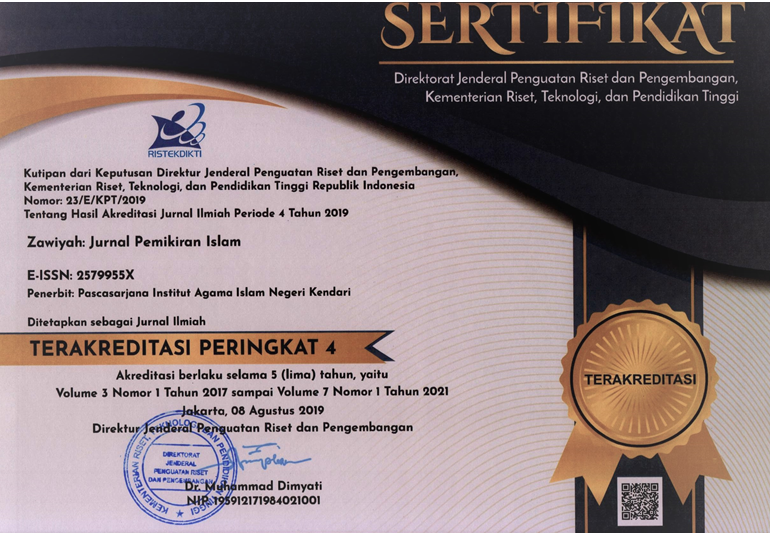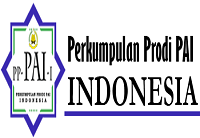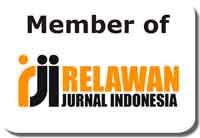THE ROLE OF HUMANIST THOUGHT IN BUILDING BRIDGES BETWEEN ISLAM AND UNIVERSAL HUMAN VALUES
Abstract
This study traces the fundamental role of humanist thought in bridging the gap between Islamic values and the universality of human values. This study adopts a library research method that applies a literature analysis approach that is not only inclusive but also holistic in collecting, evaluating, and integrating findings from various literature sources that are relevant to the focus of the study. The results of the study highlight the positive contribution of humanist thinking in stretching the harmony between Islamic teachings and universal human values, being a driver in shaping an inclusive and sustainable world for all individuals, regardless of their religious or cultural diversity. The relationship between Islamic teachings and universal human values has shown a positive evolution, with humanist thought serving as an essential link that fosters interreligious dialogue and promotes tolerance. The influence of humanist thought in the structure of society and interreligious relations also creates an environment that promotes inclusiveness, sustainability, and peace. While challenges remain, humanist thinking remains a positive driver in shaping a better world for all human beings, regardless of their religious or cultural background.
Keywords
Full Text:
PDFReferences
Al-Hyari, K., Alnsour, M., Al-Weshah, G., & Haffar, M. (2012). Religious beliefs and consumer behaviour: from loyalty to boycotts. Journal of Islamic Marketing, 3(2), 155–174. https://doi.org/10.1108/17590831211232564
Al Sadi, F. H., & Basit, T. N. (2013). Religious tolerance in Oman: addressing religious prejudice through educational intervention. British Educational Research Journal, 39(3), 447–472. https://doi.org/10.1080/01411926.2011.652071
Aroff, A. R. bin M. (2014). Values education and the Malaysia education blueprint. Journal for Interdisciplinary Research in Education (JIRE), 4, 1–15. https://doi.org/10.7603/s40933-014-0005-1
Beaman, J. (2016). As French as anyone else: Islam and the North African second generation in France. International Migration Review, 50(1), 41–69. https://doi.org/10.1111/imre.12184
Faizin, M., Karimullah, S. S., Faizal, B. T. W., & Lubis, I. H. (2023). Development Of Zakat Distribution In The Disturbance Era. JURNAL ILMIAH MIZANI: Wacana Hukum, Ekonomi, Dan Keagamaan, 10(2), 186–197. https://doi.org/10.29300/mzn.v10i2.9721
Halliwell, M., & Mousley, A. (2003). Critical humanisms: Humanist/anti-humanist dialogues. Edinburgh University Press.
Haque, A. (2004). Psychology from Islamic perspective: Contributions of early Muslim scholars and challenges to contemporary Muslim psychologists. Journal of Religion and Health, 43, 357–377. https://doi.org/10.1007/s10943-004-4302-z
Hardy, P. (2002). Medieval Muslim Philosophers on Race. Philosophers on Race: Critical Essays, 38–62. https://doi.org/10.1002/9780470753514
Hasanah, U., & Abbas, A. (2023). Optimizing Religious Moderation through Progressive Islamic Education: A Philosophical Study. TAFAHUS: Jurnal Pengkajian Islam, 3(1), 98–115.
Hope Sr, K. R. (2020). Peace, justice and inclusive institutions: overcoming challenges to the implementation of Sustainable Development Goal 16. Global Change, Peace & Security, 32(1), 57–77. https://doi.org/10.1080/14781158.2019.1667320
Islam, A. (2011). The contribution of Muslims to science during the Middle Abbasid Period (750-945). Revelation and Science, 1(01). Retrieved from https://journals.iium.edu.my/revival/index.php/revival/article/view/18
Islam, M. H. (2019). Islam And Civilization (Analysis Study on The History of Civilization In Islam). Al-Insyiroh: Jurnal Studi Keislaman, 5(1), 22–39. https://doi.org/10.35309/alinsyiroh.v5i1.3395
Islam, M. H. (2020). Tolerance limitation in facing religious diversity based on the teaching of Islam. Nazhruna: Jurnal Pendidikan Islam, 3(1), 1–13. https://doi.org/10.31538/nzh.v3i1.483
Islam, T., & Chandrasekaran, U. (2019). Religiosity, values and consumer behaviour: a study of young Indian Muslim consumers. Journal of Consumer Marketing, 36(7), 948–961. https://doi.org/10.1108/JCM-10-2017-2415
Karen, A. (2002). Islam: A Short History. New York: The Modern Library.
Karimullah, S. S. (2023). For True Humanity: Harmonization of Islamic Law and Human Rights Towards Universal Justice. Matan: Journal of Islam and Muslim Society, 5(2), 40–56. https://doi.org/10.20884/1.matan.2023.5.2.9125
Karimullah, S. S., Faizin, M., & Islami, A. (2023). Internalization of Islamic Moderation Values in Building a Civilization of Love and Tolerance. Al-Insyiroh: Jurnal Studi Keislaman, 9(1), 94–125. https://doi.org/https://doi.org/10.35309/alinsyiroh.v9i1.6345
Karimullah, S. S., Rahman, R., & Elmurtadho, F. (2023). Reflections of Prophetic Values on Strengthening Da’wah in the Digitalization Era. Mawaizh: Jurnal Dakwah Dan Pengembangan Sosial Kemanusiaan, 14(2), 134–154. https://doi.org/10.32923/maw.v14i2.3279
Karimullah, S. S., Said, N. M., Wasalmi, W., & Syafi’i, A. G. (2023). Da’wah for Social Justice: Creating Awareness of Social Issues Through a Religious Approach. Jurnal Dakwah Risalah, 34(2), 110–128. https://doi.org/10.24014/jdr.v34i2.25373
Karimullah, S. S., Wati, T. P., Najib, A., & Wahyudi, W. (2023). Iksan Kamil Sahri’s Perspective on Dualism of the Education System in Indonesia. Devotion Journal of Community Service, 4(3), 737–748. https://doi.org/10.36418/devotion.v4i3.422
Kirabaev, N. (2020). Dialogue of Cultures: Challenges of Globalization. 5th International Conference on Contemporary Education, Social Sciences and Humanities-Philosophy of Being Human as the Core of Interdisciplinary Research (ICCESSH 2020), 150–154. Atlantis Press. https://doi.org/10.2991/assehr.k.200901.030
Malović, N., & Vujica, K. (2021). Multicultural society as a challenge for coexistence in Europe. Religions, 12(8), 615. https://doi.org/10.3390/rel12080615
Newell, P., Srivastava, S., Naess, L. O., Torres Contreras, G. A., & Price, R. (2021). Toward transformative climate justice: An emerging research agenda. Wiley Interdisciplinary Reviews: Climate Change, 12(6), e733. https://doi.org/10.1002/wcc.733
Osler, A., & Skarra, J. A. (2021). The rhetoric and reality of human rights education: policy frameworks and teacher perspectives. Multicultural Education Review, 13(3), 191–210. https://doi.org/10.1080/2005615X.2021.1964265
Paya, A. (2016). Muslim Philosophies: A Critical Overview. Synthesis Philosophica, 62(2), 279–294. https://doi.org/: 10.21464/sp31204
R’boul, H. (2021). Alternative theorizing of multicultural education: an Islamic perspective on interculturality and social justice. Journal for Multicultural Education, 15(2), 213–224. https://doi.org/10.1108/JME-07-2020-0073
Ramadan, T. (2004). Western Muslims and the future of Islam. Oxford: Oxford University Press.
Reisch, M., Ife, J., & Weil, M. (2013). Social justice, human rights, values, and community practice. The Handbook of Community Practice, 73–103.
Rohmah, S., Kholish, M. A., & Galib, A. M. (2022). Human Rights and Islamic Law Discourse: The Epistemological Construction of Abul A’la Al-Maududi, Abdullahi Ahmed An-Naim, and Mashood A. Baderin. Justicia Islamica: Jurnal Kajian Hukum Dan Sosial, 19(1), 153–170. https://doi.org/10.21154/justicia.v19i1.3282
Saada, N. (2023). Educating for global citizenship in religious education: Islamic perspective. International Journal of Educational Development, 103. https://doi.org/10.1016/j.ijedudev.2023.102894
Sabiq, A. F., & Ckamim, A. (2020). Religious Learning at Material of Tolerance in the Salatiga State Vocational of High School (SMK). Istawa: Jurnal Pendidikan Islam, 5(2), 132–159. https://doi.org/10.24269/ijpi.v5i2.2536
Sahin, A. (2018). Critical issues in Islamic education studies: Rethinking Islamic and Western liberal secular values of education. Religions, 9(11), 335. https://doi.org/10.3390/rel9110335
Wati, T. P., Naimah, N., Karimullah, S. S., & Anggita, I. S. (2022). Consistency of Balinese Family Education in Forming a Love of Culture From an Early Childhood. Devotion Journal of Community Service, 3(11), 1–126. https://doi.org/10.36418/dev.v3i11.221
Wike, R., & Grim, B. J. (2010). Western views toward Muslims: Evidence from a 2006 cross-national survey. International Journal of Public Opinion Research, 22(1), 4–25. https://doi.org/10.1093/ijpor/edq002
Zia, R. (2007). Transmission of values in Muslim countries: Religious education and moral development in school curricula. In School knowledge in comparative and historical perspective: Changing curricula in primary and secondary education (pp. 119–134). Springer. https://doi.org/10.1007/978-1-4020-5736-6
DOI: http://dx.doi.org/10.31332/zjpi.v9i2.7708
Refbacks
- There are currently no refbacks.
Copyright (c) 2023 Zawiyah: Jurnal Pemikiran Islam

This work is licensed under a Creative Commons Attribution-ShareAlike 4.0 International License.
View My Stats













